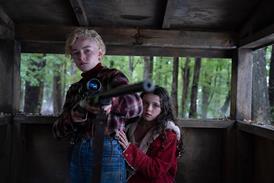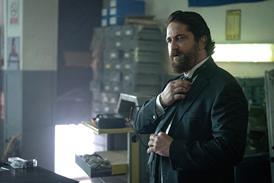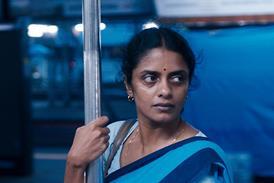Dir: Roger Michell. US. 2002. 98 mins.
Part psychological thriller, part urban morality play, Changing Lanes is that rare Hollywood offering that works both as genre entertainment and as something more complex and thought-provoking. Deftly directed - in a significant change of mood from his 1999 romantic-comedy Notting Hill - by Roger Michell, the film has made a strong start in the US, riding the appeal of stars Ben Affleck (below) and Samuel L Jackson to an estimated chart-topping $17.6m from its first weekend. Maintaining that momentum in the competitive US market may not be easy, given the film's relatively subtle appeal. But with careful marketing, Changing Lanes could join the list of classy mainstream American pictures - like Jackson's 2000 outing Unbreakable - that end up making more internationally than they do at home.
Selling the film as a hard-edged thriller certainly isn't a misrepresentation. The script, by first-time feature writer Chap Taylor and veteran writer-director Michael Tolkin, wastes little time establishing the antagonism between Jackson's Doyle Gipson, a recovering alcoholic struggling to regain the trust of his wife and kids, and Affleck's Gavin Banek, a fast-rising Wall Street lawyer. The two cross paths in a minor car accident, after which the harried Banek leaves Gipson, who is on his way to an important child custody hearing, stranded on the highway. When he realises that he has left a vital legal file at the scene of the crash, Banek regrets his callousness and desperately seeks out Gipson and the missing documents.
But like a textbook example of chaos theory at work, the incident has already begun to disrupt both men's lives; when they meet again, the encounter triggers a 24-hour cycle of revenge that brings out the worst in each antagonist. At stake are Gipson's hopes for a new beginning with his family and Banek's glittering future as a high-flying corporate attorney and socialite husband.
The escalating tension gives Changing Lanes a satisfying visceral force that rarely lets up. Woven into the thriller fabric, however, is an examination of how each man's moral choices affect his own life and the lives of those around him. While the script does touch on race and class issues, it doesn't go for the political lightening-rod effect of other urban angst stories, such as the similarly-themed 1993 drama Falling Down. Instead, it focuses on the subtleties of Gipson's and Banek's personal behaviour, bringing to mind earlier Tolkin projects like The Player and The New Age. The subtleties occasionally clash with the sometimes far-fetched plot twists, but for the most part the film maintains a refreshing sense of moral ambiguity.
Michell deserves much of the credit for weaving the script's two strands together. Particularly effective are several sequences that cut back and forth between the two main characters, paralleling the men's apparently very different lives and ramping up the tension as one recrimination leads to another.
Also contributing greatly to the film's mix of commercial potential and dramatic substance are the two lead performances. In roles that seem to play off the stars' respective public images, Affleck and Jackson both do excellent work, creating characters whose aggressive edges are softened by an appealing frailty. Standouts in the supporting cast include Collette (as Doyle's colleague and sometime mistress) and Pollack (as Doyle's coldly manipulative boss and father-in-law).
Prod cos: Scott Rudin Productions
US dist: Paramount Pictures
Int'l dist: UIP (Toho-Towa in Jap)
Prod: Scott Rudin
Exec prods: Ron Bozman, Adam Schroeder
Scr: Chap Taylor, Michael Tolkin
Cinematography: Salvatore Totino
Prod des: Kristi Zea
Ed: Christopher Tellefsen
Music: David Arnold
Main cast: Ben Affleck, Samuel L Jackson, Toni Collette, Sydney Pollack, William Hurt, Amanda Peet



















No comments yet